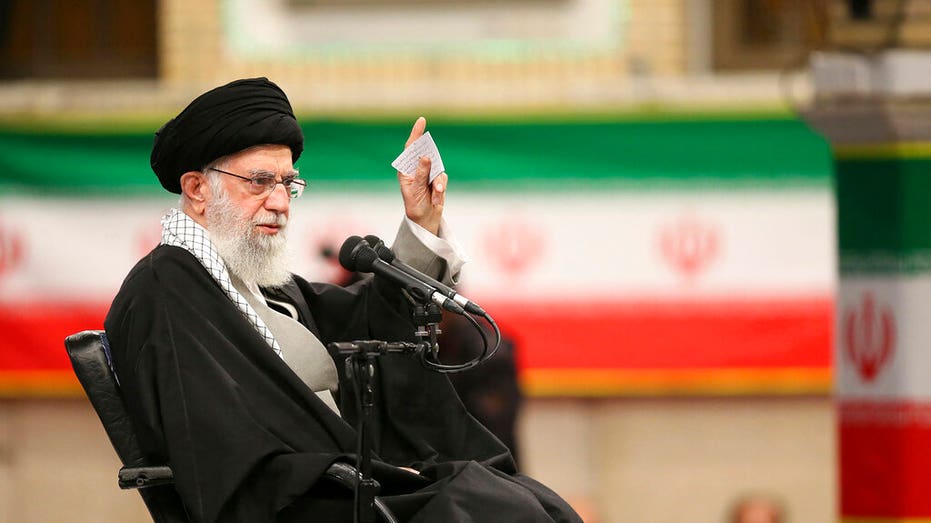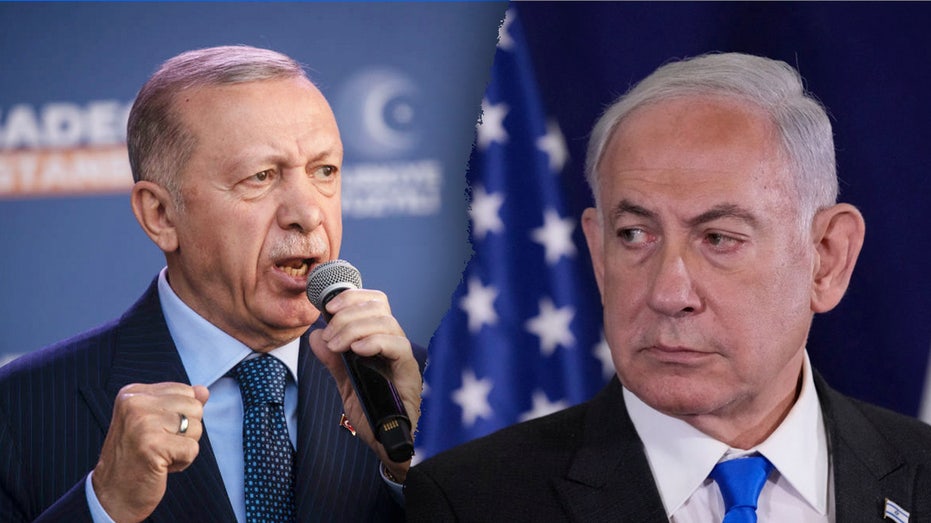Iran has boosted its production of highly enriched uranium after a slowdown earlier this year, the U.N.’s nuclear watchdog said in a report on Tuesday, according to Reuters and the Associated Press.
Iran is currently enriching uranium up to 60%, which is reaching the 90% needed for weapons, at its Pilot Fuel Enrichment Plant (PFEP) in the Natanz complex and at the Fordow Fuel Enrichment Plant (FFEP).
Rafael Mariano Grossi, the Director General of the International Atomic Energy Agency (IAEA), said in the report that Iran had “increased its production of highly enriched uranium, reversing a previous output reduction from mid-2023.”
IRAN WARNS OF ‘EXPLOSION’ IN MIDDLE EAST IF WAR IN GAZA CONTINUES: REPORT
A State Department spokesperson told Fox News Digital they are “greatly concerned” by the report, and that Iran has “no credible civilian justification for enrichment up to 60%.”
“Iran’s nuclear escalation is all the more concerning at a time when Iran as well as Iran-backed militant groups and Iran’s proxies continue their dangerous and destabilizing activities in the region,” the State Department spokesperson said. “This includes the latest drone attack against U.S. personnel in Iraq, Houthi attacks against commercial shipping vessels in the Red Sea as well as Iran’s latest armed-drone attack against a chemical tanker in the Indian ocean.”
The State Department said Iran must fully cooperate with the IAEA so its nuclear activities can be verified and make sure there is no diversion or misuse of nuclear material.
The U.N. nuclear watchdog said its inspectors had verified the increased rate of production since the end of November at the facilities to about 9 kilograms per month, up from 3 kilograms per month since June and representing a return to earlier levels of production, according to the Associated Press.
Enriching uranium means increasing the percentage of uranium-235, the isotope of uranium that can be used in nuclear fission.
Weapons require 90% purity, but the level Iran has reached far exceeds the 20% it produced prior to the 2015 nuclear deal, meaning the country has far exceeded the 3.67% cap the deal had mandated. Iran gradually abandoned those limits after the U.S. withdrew from the accord and imposed sanctions.
IRAN REPORTEDLY ENRICHING URANIUM AT 60% PURITY AT UNDERGROUND FORDOW FACILITY
If enriched further, Iran could make three nuclear bombs, according to the IAEA’s theoretical definition, and more at lower enrichment levels, Reuters reports. Iran denies seeking nuclear weapons and has maintained that its nuclear program is peaceful with treating and preventing the spread of cancer as one of its objectives.
Many diplomats believed the slowdown, which had begun by June, was the result of secret talks between the United States and Iran that led to the release of U.S. citizens held in Iran earlier this year, according to Reuters.
The news comes two weeks after Iran’s foreign minister warned that the war in Gaza could lead to a “big explosion” of conflicts in the Middle East, with Lebanon and Yemen already “involved” and more countries poised to join.
Militant groups have launched a at least 90 attacks against U.S. bases and troops in the Middle East since Oct. 17. Meanwhile, the Iranian-backed Houthi rebels, which control a large part of Yemen, have also attacked several commercial vessels with drones and ballistic missiles in recent weeks leading to heightened tensions in the region.
On Christmas Day, three U.S. service members were injured in Iraq when Iran-affiliated Kataib Hezbollah terrorists attacked Erbil Air Base, according to Secretary of Defense Lloyd J. Austin.
Fox News’ Peter Aitken, the Associated Press and Reuters contributed to this report.




